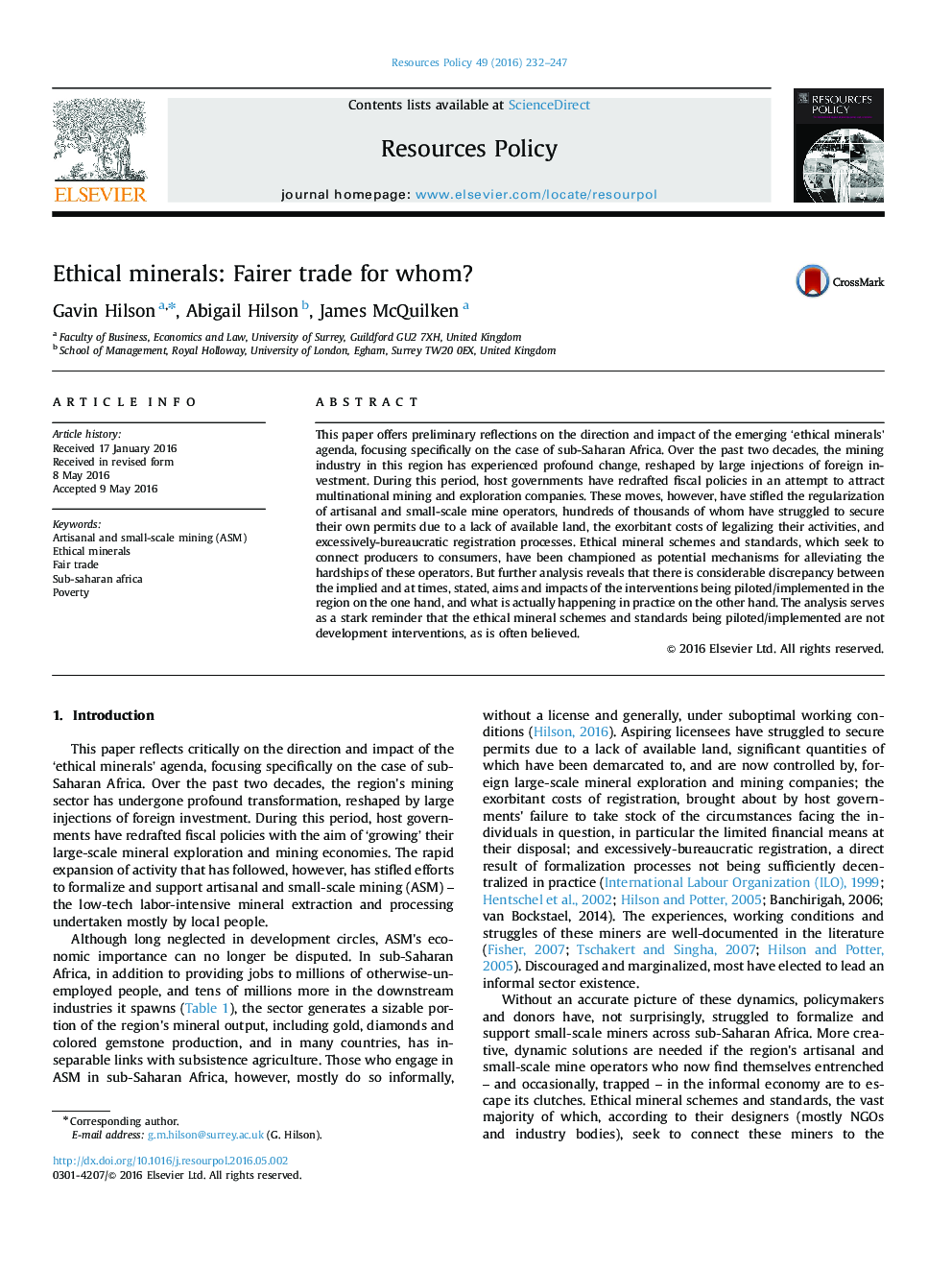| Article ID | Journal | Published Year | Pages | File Type |
|---|---|---|---|---|
| 7387725 | Resources Policy | 2016 | 16 Pages |
Abstract
This paper offers preliminary reflections on the direction and impact of the emerging 'ethical minerals' agenda, focusing specifically on the case of sub-Saharan Africa. Over the past two decades, the mining industry in this region has experienced profound change, reshaped by large injections of foreign investment. During this period, host governments have redrafted fiscal policies in an attempt to attract multinational mining and exploration companies. These moves, however, have stifled the regularization of artisanal and small-scale mine operators, hundreds of thousands of whom have struggled to secure their own permits due to a lack of available land, the exorbitant costs of legalizing their activities, and excessively-bureaucratic registration processes. Ethical mineral schemes and standards, which seek to connect producers to consumers, have been championed as potential mechanisms for alleviating the hardships of these operators. But further analysis reveals that there is considerable discrepancy between the implied and at times, stated, aims and impacts of the interventions being piloted/implemented in the region on the one hand, and what is actually happening in practice on the other hand. The analysis serves as a stark reminder that the ethical mineral schemes and standards being piloted/implemented are not development interventions, as is often believed.
Related Topics
Physical Sciences and Engineering
Earth and Planetary Sciences
Economic Geology
Authors
Gavin Hilson, Abigail Hilson, James McQuilken,
